2012-2013 Book History Colloquium at Columbia University
The Book History Colloquium at Columbia University, open to any discipline, aims to provide a broad outlet for the scholarly discussion of book history, print culture, the book arts, and bibliographical research, and (ideally) the promotion of research and publication in these fields. Our presenters include Columbia faculty members and advanced graduate students, and scholars of national prominence from a range of institutions.
Questions? Email Karla Nielsen.
All sessions take place in 523 Butler Library, 6:00 – 7:30 p.m. unless otherwise noted. Please note that RSVP is required for the January 31st Ann Blair talk.
Spring 2013
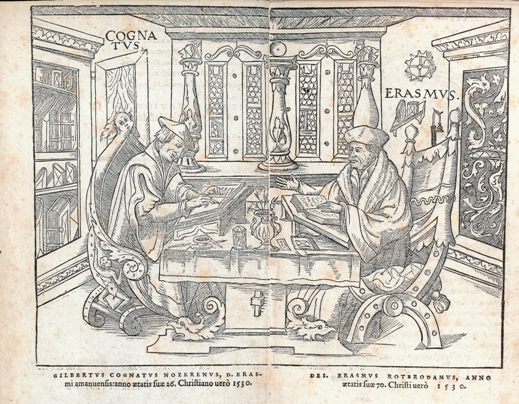
Thursday, January 31
Ann Blair
Methods of Collaboration Among Early Modern Humanists
Humanists of the fifteenth through seventeenth centuries worked with helpers of various kinds (servants, amanuenses, and family members) and with peers, either at the same time or over time by contributing to a work through successive editions. In this talk, Blair will discuss how collaboration was depicted (or not), in images and in writing, in manuscript and in print. In some circumstances collaboration was occluded to support the image of the solitary great man at work, but in other contexts collaboration was touted as an asset that enhanced the work’s authority.
Ann Blair is the Henry Charles Lea Professor of History at Harvard University, and most recently author of Too Much to Know: Managing Scholarly Information Before the Modern Age (Yale University Press, 2010).
Watch the video of this talk here.
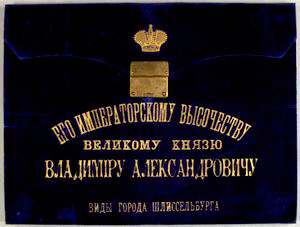
Tuesday, February 19
Edward Kasinec
Book Treasures for Tractors: The Dispersal of Libraries in Soviet Russia
The destruction and displacement of cultural treasures has often followed in the wake of political and social revolution. Kasinec’s presentation treats the Soviet government-sponsored sales of art, books, and manuscripts to Western collections during the late 1920s and early l930s, addressing what was sold and why, the agencies and agents of sale, and the Western institutions and private collectors who were the principal buyers of books and manuscripts from Soviet Russia. This illustrated presentation will deal especially with the sales of Western language books and manuscripts, for example the Codex Sinaiaticus, French illuminated manuscripts, and the works of Gutenberg, from Russian Soviet collections as well as holdings from Imperial and Grand Ducal libraries.
Edward Kasinec has served as a Curator of Slavic collections at several of America’s premier university and research libraries. He holds graduate degrees from Columbia University and Simmons College.
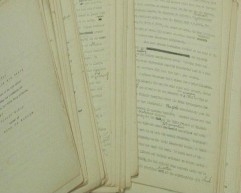
Thursday, March 28
Jean-Christophe Cloutier and Brent Edwards
Amiable with Big Teeth: Discovering Claude McKay’s Long Lost Novel
In 2009, the complete typescript of Amiable with Big Teeth, a previously unknown novel by Claude McKay written in 1941, was discovered in Columbia University’s Rare Book and Manuscript Library. In anticipation of the novel’s publication, this talk covers the story of its unexpected discovery, and recounts the years of archival research that led to its successful authentication. In addition, it will contextualize the novel’s composition, and consider its implications for our understanding of McKay and the “aftermath” of the Harlem Renaissance. The bound typescript’s location in the papers of Samuel Roth, the man who notoriously published unauthorized excerpts of Joyce’s Ulysses in the late 1920s, also suggestively links McKay’s fate to that of high modernism.
Jean-Christophe Cloutier is a graduate student in the Department of English and Comparative Literature at Columbia University, where he also works as an archival intern since 2009. His dissertation, “Archival Vagabonds: Twentieth-Century American Fiction and the Archive in Novelistic Practice,” explores the interplay between the archival and aesthetic sensibilities of twentieth-century novelists.
Brent Hayes Edwards is a Professor in the Department of English and Comparative Literature and the Center for Jazz Studies at Columbia. He is the author of the prize-winning study The Practice of Diaspora: Literature, Translation, and the Rise of Black Internationalism (Harvard UP, 2003), which was awarded the John Hope Franklin Prize of the American Studies Association and the Gilbert Chinard prize of the Society for French Historical Studies.
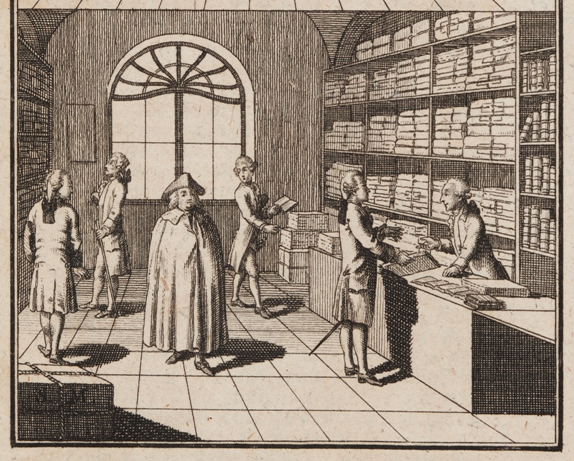
Thursday, April 18
Jeffrey Freedman
Translating the Enlightenment: The Publisher as Cultural Intermediary
The last third of the eighteenth century was a period of remarkable creativity in the world of German letters, a period historians associate with such famous authors as Lessing, Kant, and Goethe. At that time, however, German works were practically unknown outside of Germany unless translated into French, the universal language of educated Europeans. This paper will show how the (mainly Swiss) publishers who translated German works adapted their translations for an international public of French-readers that stretched from Dublin to Moscow.
Jeffrey Freedman is Associate Professor of History at Yeshiva University and the author of A Poisoned Chalice (Princeton University Press, 2002) and Books Without Borders in Enlightenment Europe: French Cosmopolitanism and European Literary Markets (University of Pennsylvania Press, 2012).
Fall 2012
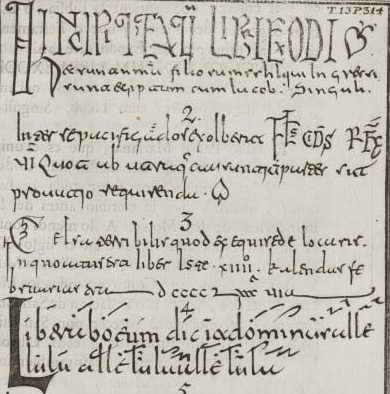
September 20, 2012 (Thursday)
Susan Boynton
Professor of Historical Musicology, Columbia University
The Visigothic Script in the Age of Print: Politics and the History of Paleography
The Visigothic script was largely overlooked by the emerging discipline of paleography in the Early Modern period, in large part because no accurate images of the script were published until 1755. The first such engraving was based on a drawing by the calligrapher Francisco Xavier Santiago y Palomares, who in the 1750s produced virtuosic hand-written facsimiles of manuscripts in the Visigothic script for a diplomatic project of the Spanish crown, as well as writing a hand-illustrated treatise on the script. This presentation will focus on Palomares’s work in relation to the politics of manuscript studies in early Enlightenment Spain.
Susan Boynton is an historian of medieval music, liturgy, and monasticism, and has a special interest in liturgical manuscripts. She is the author of Shaping a Monastic Identity: Liturgy and History at the Imperial Abbey of Farfa, 1000-1125 (Cornell, 2006) and has coedited four volumes on subjects such as the Bible in the Middle Ages, the abbey of Cluny, and child musicians. Her most recent monograph, Silent Music: Medieval Song and the Construction of History (Oxford, 2011), focuses on the work of Burriel and Palomares for the Spanish Crown in Toledo during the 1750s.
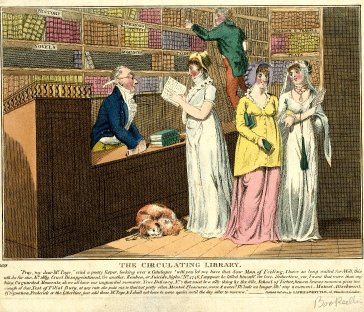
October 16, 2012 (Tuesday)
Jordan Alexander Stein
Assistant Professor of English, University of Colorado at Boulder
The Myth of the Woman Novel Reader
A well-worn truism contends that women have always read novels in greater numbers and with more consistency than men, but extant library records from late eighteenth-century New York, New Jersey, and Pennsylvania suggest a different story. Men, it seems, read novels at an equal pace and frequency. Empirical findings from admittedly scant data contrast with an abundant discourse from the late eighteenth century that routinely identifies the novel as a feminine pursuit. This talk’s larger aim is to sketch a method by which scholars might strike a balance between quantification-based empirical methods and critical analyses of discourse and representation.
Jordan Alexander Stein has conducted research on early American book history as a fellow at the Library Company of Philadelphia and the New-York Historical Society. With Lara Langer Cohen, he co-edited Early African American Print Culture (Penn, 2012), on which basis he is co-directing a 2012 American Antiquarian Society’s summer seminar “African American Cultures of Print.” This talk is part of a new book-length project tentatively titled Sex in the Archives.
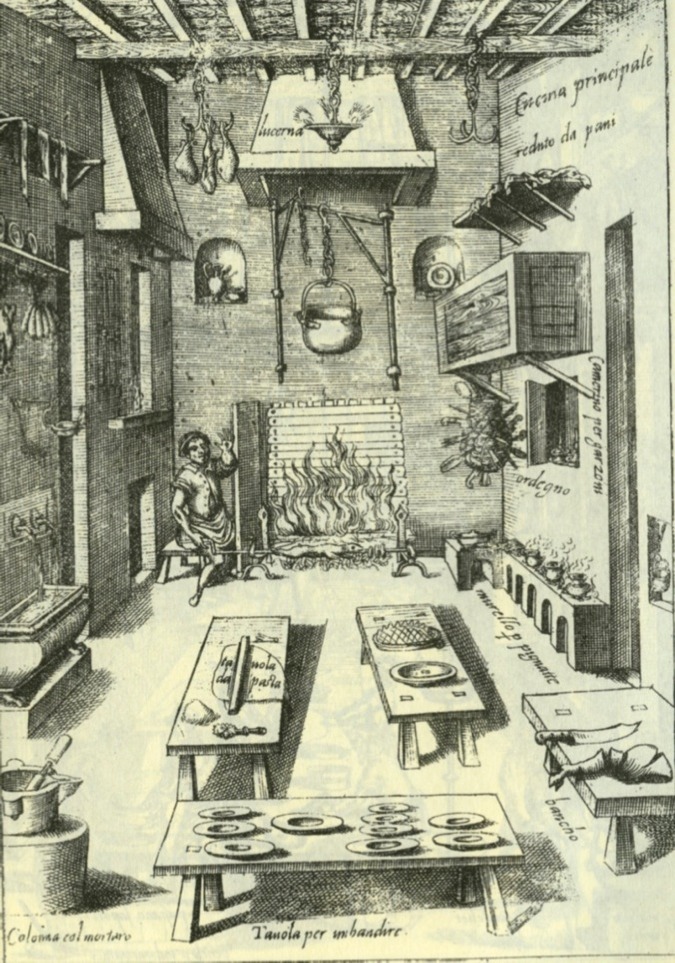
November 15, 2012 (Thursday)
Deborah L. Krohn
Associate Professor, Bard Graduate Center
Reading, Writing, and Cooking: Exploring Marginalia in an Early Modern Cookbook
Where do histories of cookbooks as objects intersect with the practices of cooking and reading? To explore this question, Deborah Krohn analyzes marginal notations in a 1610 copy of Bartolomeo Scappi’s Opera, the first illustrated cookbook. First published in Venice in 1570, the Opera went through about seven editions, remaining marketable until at least 1643, the date of the final edition. The marginalia in this edition enable us to suggest how the book was used by a steward or major domo, one of the book’s presumed main audiences. Annotated working texts such as these help us to understand the nature and forms of artisanal knowledge in the Early Modern period.
Deborah L. Krohn teaches Italian Renaissance decorative arts and material culture at the Bard Graduate Center. Her current book project, Bartolomeo Scappi’s Paper Kitchen: Food and Knowledge in Renaissance Italy, explores the history and reception of the first illustrated cookbook in Europe. She has written an article on early 17th-century English songs based on the cries of street hawkers and collaborated on the 2009 exhibition Art and Love in Renaissance Italy at the Metropolitan Museum of Art, and the 2010 exhibition Dutch New York Between East and West: The World of Margrieta Van Varick at the BGC. Also at the BGC she is co-organizing the upcoming exhibition, Salvaging the Past: Georges Hoentschel and French Decorative Arts at the Metropolitan Museum of Art.
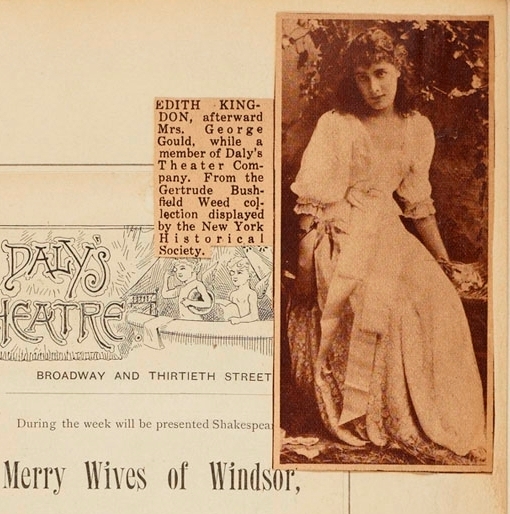
December 3, 2012 (Monday)
Sharon Marcus,
Orlando Harriman Professor of English and Comparative Literature, Columbia University
The Golden Age of Theatrical Scrapbooks, 1880-1930
Theatrical scrapbooks are some of the least utilized documents in theater history archives, yet also among the most useful, replete with cast lists, advertising imagery, ticket stubs, theater programs, seating charts, and clippings of reviews and articles. This talk provides a history of the theatrical scrapbook in the United States during the golden age of theater, 1880-1930, as well as a formal analysis of the traits that define theatrical scrapbooks as a genre distinct from other kinds of albums popular during the nineteenth century. These materials illuminate a few key problems in theater studies, including the status of the dramatic author; the relationship between theater and film; and the notoriously elusive bond between stars and fans, actors and audiences.
Sharon Marcus is the author of Apartment Stories: City and Home in Nineteenth-Century Paris and London (1999) and Between Women: Friendship, Desire, and Marriage in Victorian England (2007), which won the Perkins Prize for best study of narrative, the Albion prize for best book on Britain after 1800, the Alan Bray Memorial award for best book in queer studies, and a Lambda Literary award for best book in LGBT studies. With Stephen Best, she edited a 2010 special issue of Representations on "The Way We Read Now." This talk comes from her current book project on theatrical celebrity in the nineteenth century.